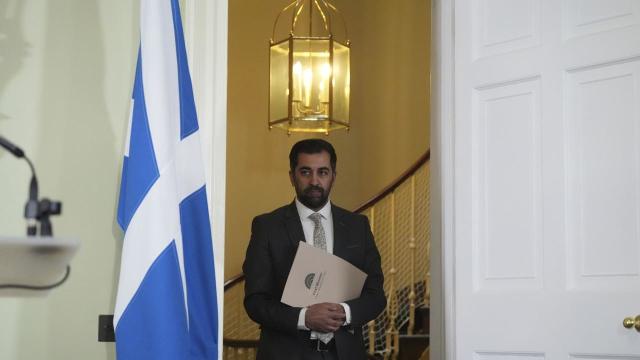The Scottish government is facing a critical moment as a vote of no confidence looms in Holyrood. This vote could lead to the resignation of all ministers if it garners enough support.
The motion was put forward by Labour after First Minister Humza Yousaf ended the power-sharing deal with the Greens last week. This move heightened pressure on Yousaf, who eventually announced his resignation on Monday.
The outcome of the vote hinges largely on the support of the Greens. Initially, they called for the motion to be withdrawn after Yousaf’s resignation.
Yousaf is expected to defend his government’s performance during the debate on Wednesday.
Despite Yousaf stepping down, Scottish Labour leader Anas Sarwar insists on pushing ahead with the motion. He doubts the SNP’s ability to lead a stable and competent government.
The no-confidence motions, one from Labour and another from the Tories targeting the first minister specifically, were tabled last week amidst the turmoil surrounding Yousaf’s leadership.
The Tories had planned to back the Green’s confidence motion, potentially leaving Yousaf reliant on support from an ex-SNP minister and Alba’s sole MSP to avoid defeat. However, the Tories have since withdrawn their proposal, considering their objective achieved with Yousaf’s resignation.
A no-confidence vote is essentially a formal assessment by a governing body on whether its leaders are deemed suitable to remain in their positions. In this context, it signals a declaration that the SNP government is deemed unfit to govern.
If the vote succeeds, all Scottish ministers would be required to step down, and the parliament would have 28 days to appoint a new first minister. Failure to do so would trigger a snap election.
While Labour, the Tories, and the Liberal Democrats are expected to support the motion, its success would likely depend on the backing of at least seven Green MSPs.
Despite this, the Greens have urged Sarwar to withdraw the motion, arguing that it has been overshadowed by recent events and pursuing it would serve no purpose other than political maneuvering.















































